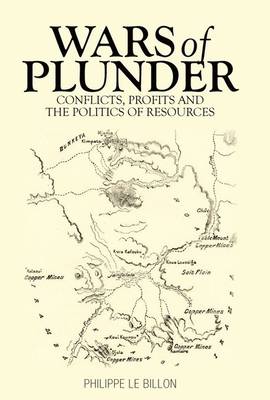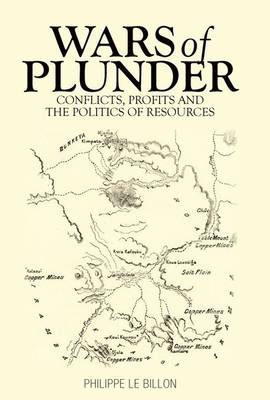
- Afhalen na 1 uur in een winkel met voorraad
- Gratis thuislevering in België vanaf € 30
- Ruim aanbod met 7 miljoen producten
- Afhalen na 1 uur in een winkel met voorraad
- Gratis thuislevering in België vanaf € 30
- Ruim aanbod met 7 miljoen producten
Zoeken
Wars of Plunder
Conflicts, Profits and the Politics of Resources
Philippe Le Billon
Paperback | Engels
€ 43,45
+ 86 punten
Omschrijving
From Angola and Liberia to Iraq and the Congo, wars have taken place in resource rich countries full of poor people. In Wars of Plunder Philippe Le Billon explores how resources have shaped recent conflicts, and what the international community has tried to do about it. Focusing on key resources-oil, diamonds, and timber-he argues that resources and wars are linked in three main ways. First, resource revenues finance belligerents, a trend that has become all the more conspicuous since the withdrawal of Cold War foreign sponsorship in the late 1980s. Although the 'War on Terror' has redefined military assistance and the internationalisation of war, many belligerents continue to rely on and profit from 'conflict resources'. Second, resource exploitation generates conflict. As global demand for raw materials has sharply increased, competition over critical resources such as oil has resulted in a flurry of 'resource conflicts', from local community struggles against mining multinationals to regional and international tensions. Third, economic shocks and poor governance sharply increase the risk of war (the 'resource curse'). While today's resource boom is a major economic opportunity for resource rich but poor countries, reliance on resource exports often implies sharp economic downturns. Not all resources are the same, however, and effective responses are at hand. Sanctions, military interventions and wealth sharing have helped bring an end to conflicts, yet only deeper domestic and international reforms in resource governance can stop the plunder.
Specificaties
Betrokkenen
- Auteur(s):
- Uitgeverij:
Inhoud
- Aantal bladzijden:
- 288
- Taal:
- Engels
Eigenschappen
- Productcode (EAN):
- 9780199333462
- Verschijningsdatum:
- 16/01/2014
- Uitvoering:
- Paperback
- Formaat:
- Trade paperback (VS)
- Afmetingen:
- 140 mm x 213 mm
- Gewicht:
- 476 g

Alleen bij Standaard Boekhandel
+ 86 punten op je klantenkaart van Standaard Boekhandel
Beoordelingen
We publiceren alleen reviews die voldoen aan de voorwaarden voor reviews. Bekijk onze voorwaarden voor reviews.







